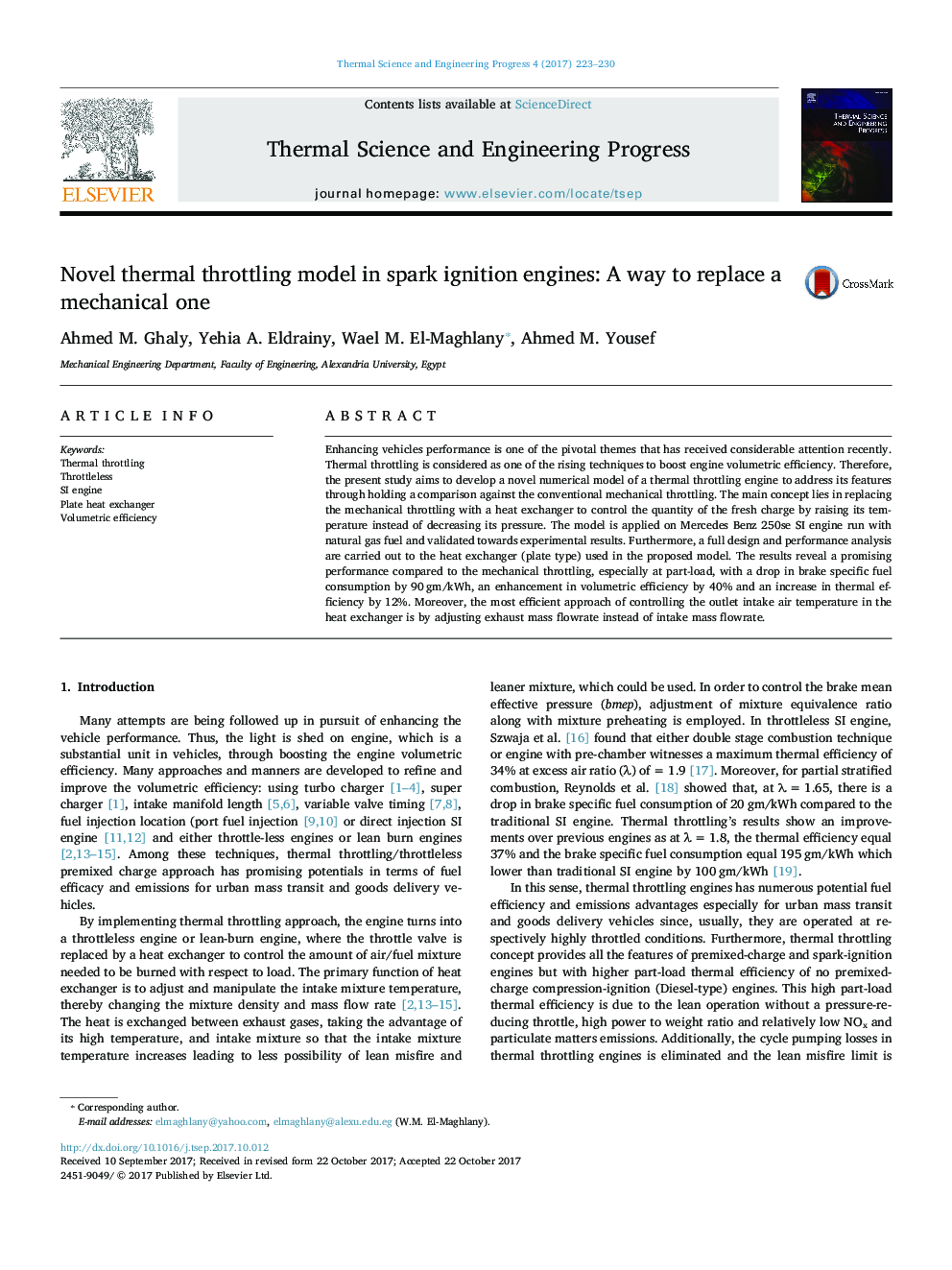| Article ID | Journal | Published Year | Pages | File Type |
|---|---|---|---|---|
| 8918859 | Thermal Science and Engineering Progress | 2017 | 8 Pages |
Abstract
Enhancing vehicles performance is one of the pivotal themes that has received considerable attention recently. Thermal throttling is considered as one of the rising techniques to boost engine volumetric efficiency. Therefore, the present study aims to develop a novel numerical model of a thermal throttling engine to address its features through holding a comparison against the conventional mechanical throttling. The main concept lies in replacing the mechanical throttling with a heat exchanger to control the quantity of the fresh charge by raising its temperature instead of decreasing its pressure. The model is applied on Mercedes Benz 250se SI engine run with natural gas fuel and validated towards experimental results. Furthermore, a full design and performance analysis are carried out to the heat exchanger (plate type) used in the proposed model. The results reveal a promising performance compared to the mechanical throttling, especially at part-load, with a drop in brake specific fuel consumption by 90â¯gm/kWh, an enhancement in volumetric efficiency by 40% and an increase in thermal efficiency by 12%. Moreover, the most efficient approach of controlling the outlet intake air temperature in the heat exchanger is by adjusting exhaust mass flowrate instead of intake mass flowrate.
Related Topics
Physical Sciences and Engineering
Energy
Energy Engineering and Power Technology
Authors
Ahmed M. Ghaly, Yehia A. Eldrainy, Wael M. El-Maghlany, Ahmed M. Yousef,
